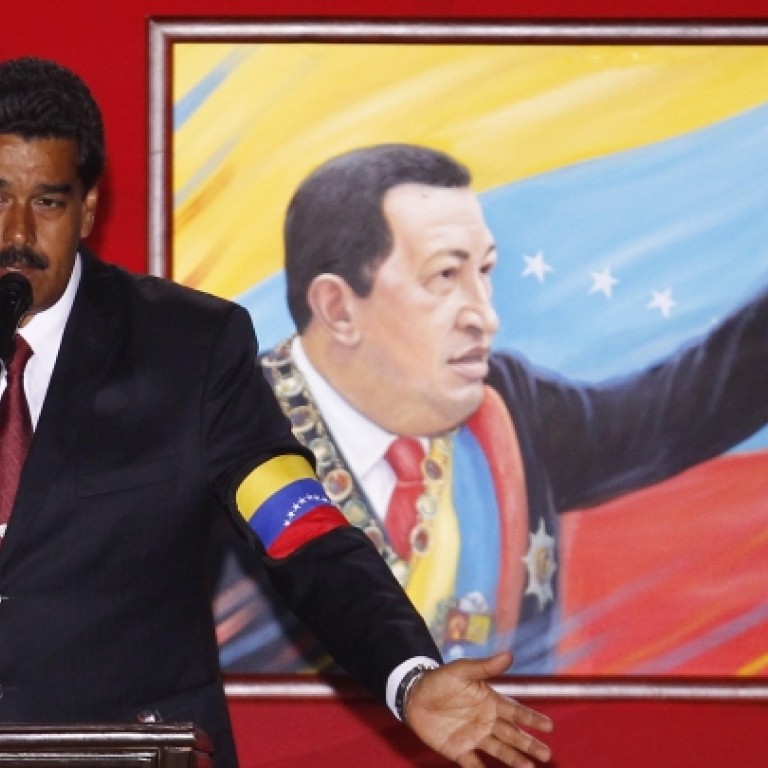
Venezuela to ease foreign exchange regime: source
Venezuelan government wants to squeeze trading on the illegal black market, and to bring down street price of US dollars
Venezuela will make its foreign currency system more flexible by reviving a stalled dollar auction scheme in July and after that allowing a revival of a free-floating secondary currency mechanism, a source in the government’s economic team said.
Venezuela has operated currency controls for a decade, and restricted access to dollars at the official rate of 6.3 bolivars are a major gripe for local businesses and a cause of the OPEC member’s slowing growth rate.
The Finance Ministry source said the government of newly-elected President Nicolas Maduro will in July allow a renewal of the so-called Sicad system. In a first round in March of this year, dollars were sold to businesses for reportedly as much as 14 bolivars apiece.
After another Sicad auction, authorities will then allow a revival of a system prohibited since 2010, under which dollars are sold by private brokers at a floating rate determined by a complicated formula linked to bond prices, the source added.
That system is known locally as a “swap” mechanism.
Both those methods would run alongside the fixed exchange rate system, under which businesses are allowed to access dollars at 6.3 bolivars for some priority goods, such as medicines and essential foods.
“The idea is to go with Sicad in July,” said the official, who asked not to be named. “Then what we want is to move to a secondary market, a ‘swap’ market, with the private players.”
The government’s intention is to squeeze trading on the illegal black market, and to bring down the price of dollars on the street. Greenbacks bought on the black market currently fetch more than five times the official fixed rate.
Authorities are also under pressure to get more dollars into the hands of importers.
Some private economists and government critics argue now is the time for Maduro to abandon the currency controls altogether.
They say the failure of such socialist economics, which date from the era of his late predecessor Hugo Chavez, are evident in the shortages, high inflation and slowing growth that Venezuela’s 29 million people are suffering.
One local think-tank, Ecoanalitica, estimates that some US$140 billion (HK$1.1 trillion) have left the country illicitly since the currency controls were first put in place by Chavez’s government in 2003.
Maduro argues that private businessmen and capitalist “speculators” have been deliberately hoarding consumer products and sabotaging the economy in order to undermine his rule.
In the first quarter of this year, the state currency board Cadivi opened investigations into more than 2,400 companies and suspended more than 200 for what it termed foreign exchange “irregularities.”
Until it was shuttered by the government in May 2010, scores of brokerages had reaped a lucrative trade in foreign exchange through bond swaps in what was known as the “parallel market.”
That amounted to a US$30 billion (HK$232.7 billion) a year market and provided dollars for, by some estimates, at least a quarter of imports, before the authorities raided many of the brokerages, which the Chavez government had accused of illegal money laundering and unchecked speculation.
With inflation running at a record monthly high of 6.1 per cent in May and growth slowing to just 0.7 per cent in the first quarter despite high oil prices, Maduro has inherited economic headaches only two months into his new job.
Next month’s revival of Sicad is unlikely to bring quick relief. Only US$200 million was sold at the auction in March, while economists estimate that the Venezuelan economy needs around US$100 million per day to cover the imports it needs.
Participants in Sicad have also complained that the process is cumbersome since it supplies dollars directly to the foreign provider of the goods, rather than the businesses importing them.
Venezuela has historically depended on imports to supply key consumer goods, including much of its food. Critics of Chavez’s government say its policies, including nationalisations, hurt the private sector and left the economy more reliant on imports.
Venezuela’s non-oil exports at US$145 million in March fell to their lowest level since early 2009, 37 per cent lower than during the same month last year.

